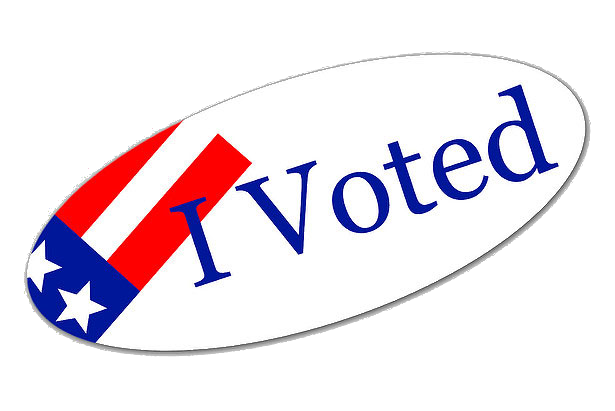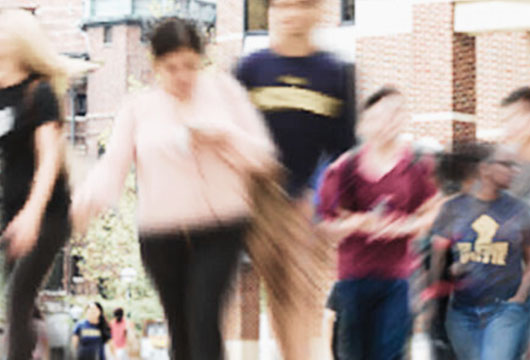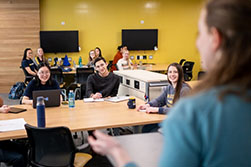| Teaching and Learning in a Tense Election Season Mon, 08/29/2016
Instructors in every discipline have cause to prepare thoughtfully for the impact of this election season on their students, their curriculum, their classroom climate, and themselves. Maintaining a commitment to inclusive teaching during an election that is itself fraught with hostility around questions of diversity requires a renewed insistence on the free and fair exchange of ideas. To support this commitment, we offer the following three questions instructors might ask themselves while preparing to teach. 1. What role does my discipline play in the issues raised by this election? Our students need to be able to critically evaluate the platforms of candidates and elected leaders. Every discipline is somehow implicated in these agendas, whether the topic is immigration and the rights of refugees; fracking, genetically modified foods, or climate change; education and health care; history, race, and the Black Lives Matter movement; gender (in)equality and LGBTQ rights; or international relations and the “war on terror.” Instructors can ask:
Many U-M students will vote in this election. By asking questions such as those above, we as instructors can help them engage with the data and skills they need to weigh the issues and make informed decisions. 2. How might my courses allow students to practice some of the fundamental, particular skills required by democracy? In addition to the content of our individual disciplines and courses, there are overarching democratic skills that students can develop in courses across the University. These include: Read more |
| CRLT Summer Services Fri, 07/08/2016
For our full range of consultation services, see this page. Read more |
| Capturing the Impact of Engaged Learning Thu, 05/05/2016
Here are a few of the many ways that students already experience engaged learning at U-M: Read more |
| Inclusive Teaching @ Michigan: Registration Open for May Workshop Series Fri, 04/22/2016
U-M instructors in all disciplines are invited to register for one or more of these workshops focused on concrete strategies for inclusive teaching, through classroom practices, course design, and both formal and informal interactions with students. Held during the first three weeks of May, and led by staff and faculty from CRLT, IGR, and LSA, this series of workshops will include opportunities to: Read more |
| Making Student Ratings More Useful: Guidelines for Students and Instructors Mon, 04/11/2016 As we approach the end of the term, students will be asked to provide feedback to instructors using U-M's course evaluation system. At CRLT, we often hear from faculty and GSIs who are discouraged about a number of issues related to student ratings, including the tone of some written comments, relatively low response rates, and uncertainty about how best to use the results productively. This post provides some resources for each of these concerns.  1) Minimizing Unhelpful Comments: Student ratings comments can be unhelpful when vague or irrelevant, whether positive ("Great course!") or negative (e.g., criticism of instructor attributes not linked to the learning environment). To encourage students to avoid rude or personally hurtful comments, CRLT worked closely with ADVANCE at U-M on a handout that instructors can give to students before they fill out their evaluations. The handout, Course Evaluations: Providing Helpful Feedback to Your Instructors, asks students to keep three key issues in mind when completing their ratings: 1) Minimizing Unhelpful Comments: Student ratings comments can be unhelpful when vague or irrelevant, whether positive ("Great course!") or negative (e.g., criticism of instructor attributes not linked to the learning environment). To encourage students to avoid rude or personally hurtful comments, CRLT worked closely with ADVANCE at U-M on a handout that instructors can give to students before they fill out their evaluations. The handout, Course Evaluations: Providing Helpful Feedback to Your Instructors, asks students to keep three key issues in mind when completing their ratings:Read more |
| GSIs Honored for Excellent Teaching Thu, 04/07/2016
The four Towner awardees were honored at the College of Engineering's Student Leaders and Honors Brunch on Sunday, March 20. Rackham will be hosting a public awards ceremony to honor its twenty prize-winners, along with outstanding faculty mentors, on April 14. For more information, including the names and departments of all of the winners, see this Rackham page and this College of Engineering page. Read more |
| How Do We Teach About Privilege? Wed, 03/30/2016 In October 2015, CRLT hosted a U-M faculty panel that addressed challenges and strategies for teaching about difference and privilege. In this post, we spotlight some key moments when faculty described tensions or difficulties, and we suggest strategies for leveraging these for student learning. The panel featured four LSA faculty members:
(Click on a panelist name to see a video of their talk, or see the embedded videos at the end of this post. Each video runs 8-9 minutes.) "Several years ago, I was teaching a class on social identity and we were talking about whiteness. Actually, we weren't talking about whiteness. That was the problem." (Al Young) What happens when discussions about race and privilege turn silent? Faced with the dynamic described above, Young asked students to turn their lens to analyzing the silence they were experiencing by writing a minute paper on the stalled conversation: "What's the problem right now with the conversation on white identity?" After writing for 3-5 minutes, he finds students are more likely to voice their thoughts out loud. For silent or superficial discussions, Helen Fox (2009) also recommends having students write on an index card, "One thing I've been reluctant to say....," which serves as a prompt for follow-up discussion. “We’re teaching about privilege because privilege is pervasive but knowledge about it is not….Your students, they don’t come in getting it.” (Ruby Tapia) Read more |
| The U-M Center for Interprofessional Education Launches New Leadership Fellows Program Tue, 02/16/2016
In recent years there has been a growing emphasis on education that crosses disciplinary boundaries and teaches students to work on teams. In the health sciences, this is due to an increased awareness that collaborative care is a reality for students after they graduate from any number of health science programs. Interprofessional education (IPE), as defined by the World Health Organization and adopted by the Interprofessional Education Collaborative, "occurs when students from two or more professions learn about, from, and with each other to enable effective collaboration and improve health outcomes." In January 2016, the University of Michigan’s Center for Interprofessional Education launched a new Interprofessional Leadership Fellows program. This program was developed so that health science professionals with a strong interest in interprofessional education and practice might become change agents for IPE efforts on campus and beyond. The sixteen IPE fellows making up the inaugural cohort represent the following U-M health science schools: Read more |
| Applications invited for Preparing Future Faculty seminar Mon, 01/25/2016 CRLT is accepting applications through Monday, February 22, for the May Preparing Future Faculty (PFF) Seminar. Interested graduate students can learn more about the program here. In this guest post, past participant Katy Peplin (Ph.D. candidate in Screen Arts and Cultures) shares reflections from 2015 seminar participants:
“PFF gave me exposure to what faculty life really looks like (in terms of family, work/life balance, tenure expectations, teaching loads) - at U of M but also at different types of institutions. I had the opportunity to ask questions of U of M faculty that I might not be comfortable asking my advisors, and it was immensely valuable to see what faculty life looked like at other types of institutions.” “The PFF seminar was an invaluable experience! It demystified much about professional academic life including the workings of the tenure process, dimensions of faculty work-life balance, and differences between institution settings. And it helped me enormously to clarify and crystallize my own pedagogical values and approach. I would highly recommend it to others.” “PFF broadened my horizons, showing the real challenges of the job market but also equipping us to confront them.” “As a STEM person with little-to-no teaching experience, just having an awareness of much of the teaching related methods and pedagogies was very helpful. It was a true experience of an inclusive teaching environment and I really appreciated that experience.” “Wonderful! I found the panels, roundtable discussions and campus visits very helpful, and teaching demonstrations and information on inclusive practices to be helpful as well. I really feel like I have a better understanding of potential careers, job searches and being a more inclusive teacher!” Read more |
| Teaching in Unsettling Times Mon, 12/07/2015 As we end the fall term and look forward to winter, students and faculty are confronting significant turmoil around the world, as well as protests and passionate discussions within academia. Whether it’s the horrible incidents of violence in this country or elsewhere across the globe, or incidents of racial bias that have led to protests and heightened rhetorical exchanges on a number of campuses, distressing events far from home and close to it are likely to be on students’ minds.
At this point in the term, the disturbing events of recent weeks have the potential to make an already stressful time of the year even more difficult for many students. What can instructors do?
Read more |


 Teaching and learning are never entirely void of politics, but this fall—as a new U.S. president is elected mid-semester—the tension, drama, and controversy of the political moment will no doubt be especially palpable in classrooms across the university.
Teaching and learning are never entirely void of politics, but this fall—as a new U.S. president is elected mid-semester—the tension, drama, and controversy of the political moment will no doubt be especially palpable in classrooms across the university. CRLT is available to support U-M teachers throughout the summer. If you're teaching a course, you can request a
CRLT is available to support U-M teachers throughout the summer. If you're teaching a course, you can request a  “Engaged learning” is a common term at the University of Michigan and a growing movement nationally. What does it mean? U-M’s working definition conceives of engaged learning as providing students with opportunities for practice in unscripted, authentic settings, where stakeholders (including the students themselves) are invested in the outcome. This pairs nicely with Grant Wiggins’s concept of “
“Engaged learning” is a common term at the University of Michigan and a growing movement nationally. What does it mean? U-M’s working definition conceives of engaged learning as providing students with opportunities for practice in unscripted, authentic settings, where stakeholders (including the students themselves) are invested in the outcome. This pairs nicely with Grant Wiggins’s concept of “ As an instructor at U-M, how can you contribute to a campus climate where all students feel valued and fully supported as members of our academic community? This is the key question behind the upcoming
As an instructor at U-M, how can you contribute to a campus climate where all students feel valued and fully supported as members of our academic community? This is the key question behind the upcoming  GSIs across campus are being recognized for their excellent teaching. CRLT warmly congratulates winners of Rackham's Outstanding GSI Award and the College of Engineering's Richard and Eleanor Towner Prize for Outstanding GSIs. Selected from large pools of nominees, all of these instructors have demonstrated extraordinary commitment, creativity, and overall excellence in their teaching.
GSIs across campus are being recognized for their excellent teaching. CRLT warmly congratulates winners of Rackham's Outstanding GSI Award and the College of Engineering's Richard and Eleanor Towner Prize for Outstanding GSIs. Selected from large pools of nominees, all of these instructors have demonstrated extraordinary commitment, creativity, and overall excellence in their teaching.

 After participating in the Preparing Future Faculty Seminar in May 2014, I was lucky to be able to work with the team that facilitated the seminar in 2015. I loved the chance to contribute to a program that was so deeply useful for me, and I loved seeing how valuable the program was for others even more. You’re welcome to read
After participating in the Preparing Future Faculty Seminar in May 2014, I was lucky to be able to work with the team that facilitated the seminar in 2015. I loved the chance to contribute to a program that was so deeply useful for me, and I loved seeing how valuable the program was for others even more. You’re welcome to read 




